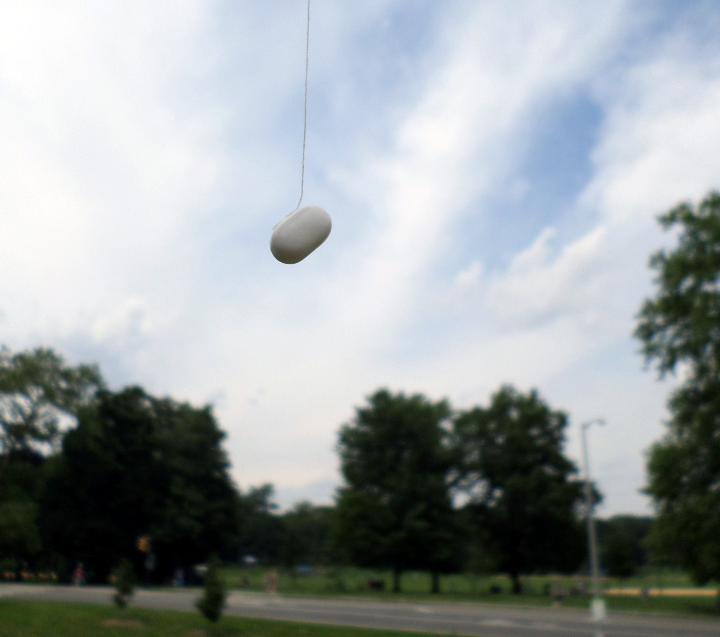What UFOs Are Not: Optical Illusions

OK, so let me start by saying that actually they totally could be an optical illusion. But they also could be piloted by extra-terrestrials. The chances that they are optical illusions becomes less and less likely with every bit that gets leaked from the government. At this point, the likelihood that the UFOs documented by the military are optical illusions is approaching the same likelihood that they are piloted by aliens: pretty remote. I fully expect the report that comes out in a couple of weeks to pretty much nip optical illusions in the bud.
Why? Because our best-trained pilots are now visually confirming objects which are also being confirmed by multiple high-tech instrument systems. When multiple systems all agree that there are solid objects flying through the sky, and those objects are also being witnessed by reliable people, the chance of an optics trick starts to diminish rapidly. The coming report may or may not include this finding explicitly, but it will implicitly be a sure thing.
The chance of optical illusion is further diminished by the 80-year history of people seeing exactly the same kinds of objects now being documented by the military. Until recently those objects were not confirmed by instrumentation. This leads the skeptical folks to state that the military’s new hardware is glitchy and the UFOs are nothing more than manifestations of those glitches. But if our pilots are seeing the “glitches” with their own eyes? That swings the scale of possibilities to make it more likely that what is actually happening is that our fancy hardware has only recently gotten sophisticated enough to actually detect/see these things.
And that is why we’re talking about UFOs today. Our gear finally caught up with our own eyes, after 80 years.
Despite this, the skeptical folks are doubling-down on the “optical illusion” and “computer glitch” theories. This is because scientists are far more influenced by culture and politics than they want you to believe. For more than a hundred years scientists didn’t believe in meteorites. No matter how many farmers showed up at the institutions of the learned with strange stones they picked up in their fields after watching them fall from the sky, the scientists refused to believe that “stones from the sky” were possible.
Scientists study what is popular. They study what they can get the funding to study. They study what is reasonable to study without embarrassing their careers. These limitations create a body of work that is not in any way comprehensive and is riddled with bias. From that uncomprehensive, biased body of work scientists pull their understanding of the world. And that’s before you roll in problems with reproducibility, p-hacking, effective placebos, and publication bias. Science and empirical evidence are like democracy — it’s the best of the worst. There’s nothing wrong with that except for the attitude among scientists that scientists’ opinions are unassailable. And that problem is compounded by culture-wide deference to the opinions of “experts,” particularly among the media class. Science would be much better off with a healthy dose of skepticism in science itself.
In the case of UFOs, it is now clear that the hyper-skeptical and the empiricism-nuts have gone too far. They try too hard to explain away the mysterious with conventional explanations. It is almost always possible to find a conventional explanation for the strangest of things — it’s only slightly harder than finding a conspiracy-based or wildly-imaginative explanation.
Because the skeptics have worked against UFOs for so long, it has led us to this state of marginalization of anyone who has seen a UFO. And, ironically, this is bad for the empiricists: it shuts down an unbiased observation, it limits funding for research, and it alienates entire segments of the population who might be weirdos, but that doesn’t mean they are blind and stupid. It also simply shuts down the imagination. No wonder no one had a vision for how to improve the world anymore.
The skeptics, scientists, and hard-core empiricists might soon find that they have been blocking humanity from one of the most wildly transformative findings for 80 years. If so, science, I think, needs to take a good hard critical look at itself. How much is empiricism benefiting us if it hugely delayed our realization of the significance of UFOs? And that critical view of empiricism remains valid in any situation where the finding about what UFOs are turns out to be astounding. Extra-terrestrials or otherwise.